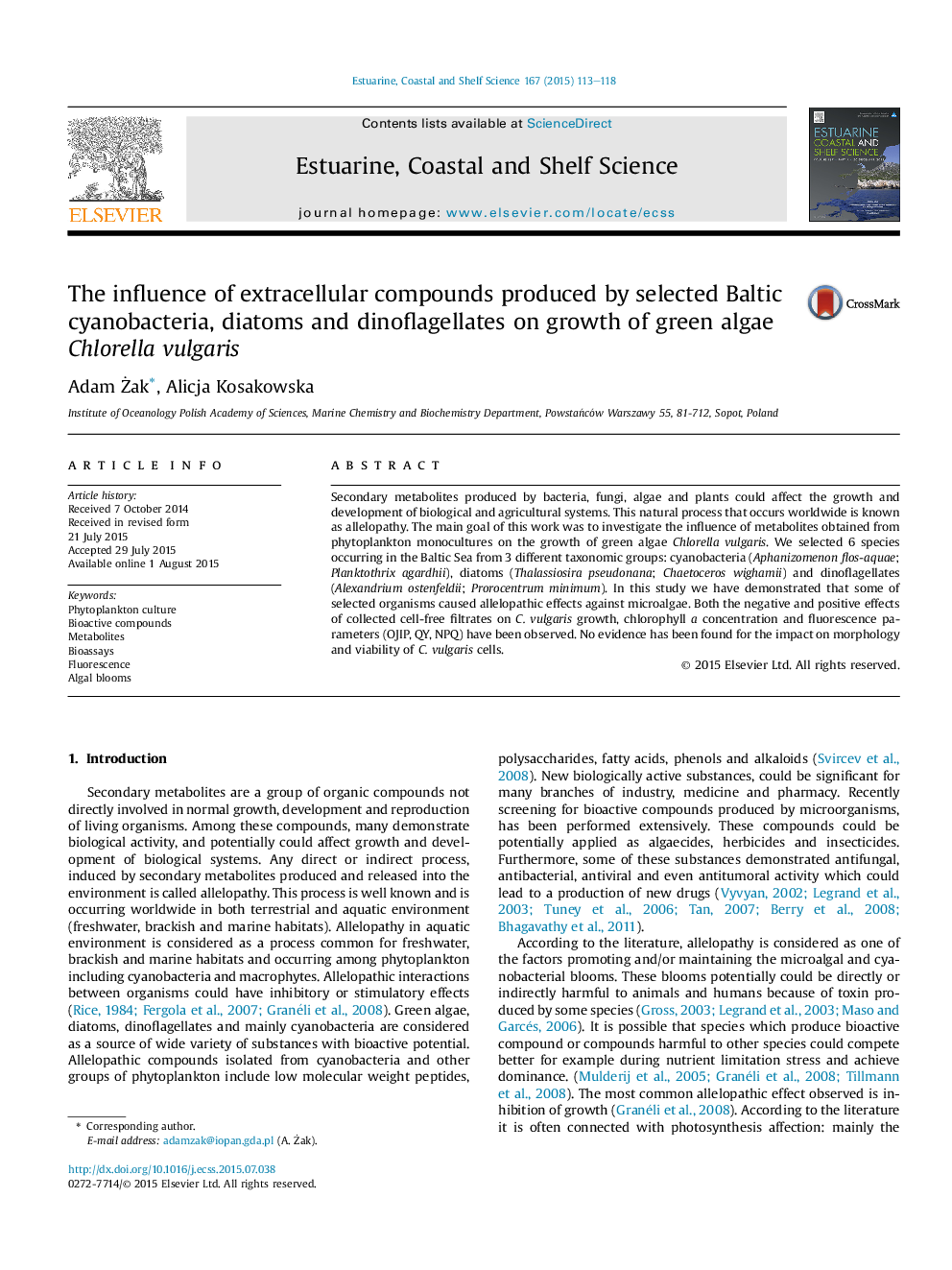| Article ID | Journal | Published Year | Pages | File Type |
|---|---|---|---|---|
| 6384560 | Estuarine, Coastal and Shelf Science | 2015 | 6 Pages |
Abstract
Secondary metabolites produced by bacteria, fungi, algae and plants could affect the growth and development of biological and agricultural systems. This natural process that occurs worldwide is known as allelopathy. The main goal of this work was to investigate the influence of metabolites obtained from phytoplankton monocultures on the growth of green algae Chlorella vulgaris. We selected 6 species occurring in the Baltic Sea from 3 different taxonomic groups: cyanobacteria (Aphanizomenon flos-aquae; Planktothrix agardhii), diatoms (Thalassiosira pseudonana; Chaetoceros wighamii) and dinoflagellates (Alexandrium ostenfeldii; Prorocentrum minimum). In this study we have demonstrated that some of selected organisms caused allelopathic effects against microalgae. Both the negative and positive effects of collected cell-free filtrates on C. vulgaris growth, chlorophyll a concentration and fluorescence parameters (OJIP, QY, NPQ) have been observed. No evidence has been found for the impact on morphology and viability of C. vulgaris cells.
Related Topics
Physical Sciences and Engineering
Earth and Planetary Sciences
Geology
Authors
Adam Żak, Alicja Kosakowska,
